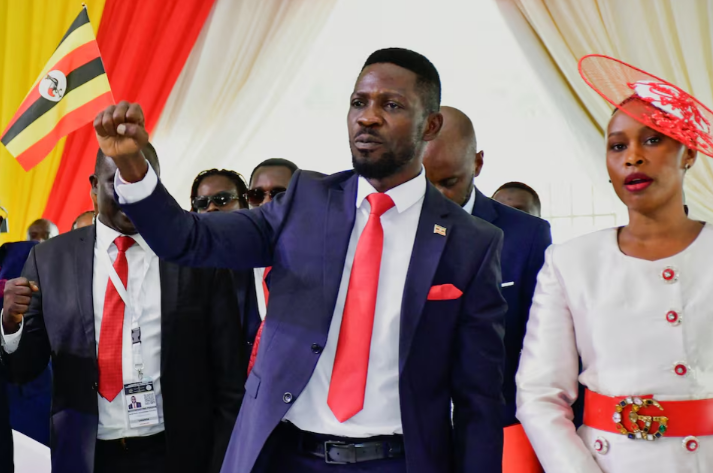
Introduction
Uganda’s political landscape has entered a new chapter after the Electoral Commission officially cleared Robert Kyagulanyi Ssentamu, widely known as Bobi Wine, to contest in the 2026 presidential elections.
Bobi Wine, leader of the National Unity Platform (NUP), is President Yoweri Museveni’s main challenger, representing the hopes of many Ugandans seeking political change after nearly four decades of Museveni’s rule.
Background
- Bobi Wine rose to fame as a musician before joining politics in 2017.
- In the 2021 elections, he secured millions of votes but rejected the results, citing electoral malpractice.
- His political party, the National Unity Platform, remains the strongest opposition force, particularly popular among urban youth and those demanding democratic reforms.
What the Clearance Means
1. Stronger Opposition in 2026
The clearance makes Bobi Wine the leading opposition candidate, ensuring a direct contest with President Museveni.
2. Youth Mobilization
Over 75% of Uganda’s population is under 30, and Bobi Wine’s messaging strongly appeals to young Ugandans frustrated with unemployment, corruption, and governance issues.
3. Election Dynamics
His participation is expected to intensify scrutiny of Uganda’s democratic processes, with observers keeping a close eye on media access, campaign freedoms, and security during the elections.
National & International Reactions
- Supporters hailed the clearance as a victory for democracy and a step toward change.
- Critics argue that while symbolic, Bobi Wine faces challenges in competing against Museveni’s strong political machinery.
- International observers have called for a free and fair election process, emphasizing equal access for all candidates.
Conclusion
With Bobi Wine officially cleared to run in the 2026 presidential elections, Uganda is heading into what may become one of the most decisive electoral contests in its history.
Whether this moment sparks real political change or reinforces the status quo will depend on how the campaigns unfold, how institutions perform, and how Ugandans—especially the youth—respond at the ballot box.
